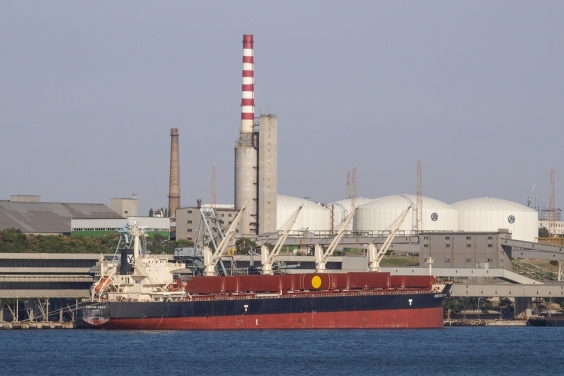Regardless of numerous signals sent to the government by the opposition, the situation in the national transportation sector continues deteriorating. OPPOSITION PLATFORM — FOR LIFE MP Serhiy Lovochkin has filed an inquiry to Prime Minister Volodymyr Hroisman with a request to eliminate causes of the crisis in the transportation sector.
“In June last year, I filed another inquiry stressing the need in urgent measures by the Cabinet of Ministers aimed at eliminating the negative trends in the transportation sector. Resulting from the lack of systematic and efficient steps in this direction by the government, the situation with the named economy sector continues deteriorating. Given all of the above, I suggest taking urgent measures aimed at eliminating the reasons behind the crisis in the transportation sector and shaping the prerequisites for its development,” the inquiry reads.
The politician said the last year performance indicators for the transportation sector had been among the lowest in the economy. The number of passengers slid by 3.5 percent, including a 5.6-percent drop in the automobile transport.
“The lack of complex measures by the government aimed at revival of water transport continues resulting in its degrading. While back in 1981, water transport carried 58.2 million passengers, last year it was only 700,000 passengers. Compared to 2017, the passenger traffic for water transport dropped by over 9 percent. The freight turnover decreased by 20.5 percent last year, and the freight volume by 4.5 percent,” he said.
The MP said the same reasons led to the decrease in passenger traffic for railway transport. Last year, this indicator dropped by 4 percent. Another alarming trend that is indicative of weak economic performance is the decrease of cargo turnover by 3.4 percent last year, and the freight volume by 2 percent.
Rail transport, which provides more than half of all freight traffic, saw its cargo turnover decreased by almost 3 percent, and the volume of freight traffic dropped by more than 5 percent. The systemic nature of this decline is confirmed by the fact that it affected transportation of almost all categories of goods: wood and timber by 14.1 percent, construction materials by almost 13 percent, oil and oil products by 9.3 percent, grain by 8 percent, cement by 4.5 percent, chemical and mineral fertilizers by almost 4 percent, ferrous metals by 3.4 percent, hard coal by 2.6 percent, coke by 2.6 percent, and ferrous metal scrap by 2.5 percent.
2018 was unsuccessful for pipeline transport as well. Its cargo turnover fell by almost 6 percent, the volume of freight traffic by 4.7 percent. Gas pumping decreased by 5.4 percent, of oil by 3.7 percent, gas and oil transit decreased by 7.2 percent and 4.3 percent, respectively. The lack of effective steps by the government aimed at putting things right looks particularly alarming given the imminent termination of the “gas contract” with the Russian Federation, which might lead to reducing the volume of gas pumping through the domestic gas transport system to a level critical for its efficiency.
“Experts say the transportation strategy approved by the Cabinet of Ministers last year does not include systematic and concrete measures aimed at eliminating true causes behind the continuing decline in the transportation sector. Instead, the strategy declares populist and unrealistic tasks, including the construction of a hyperloop, fifty new airports, ten highways, complete replacement of the sets of train cars, etc.,” Lovochkin concluded.
Follow @serhiylovochkin